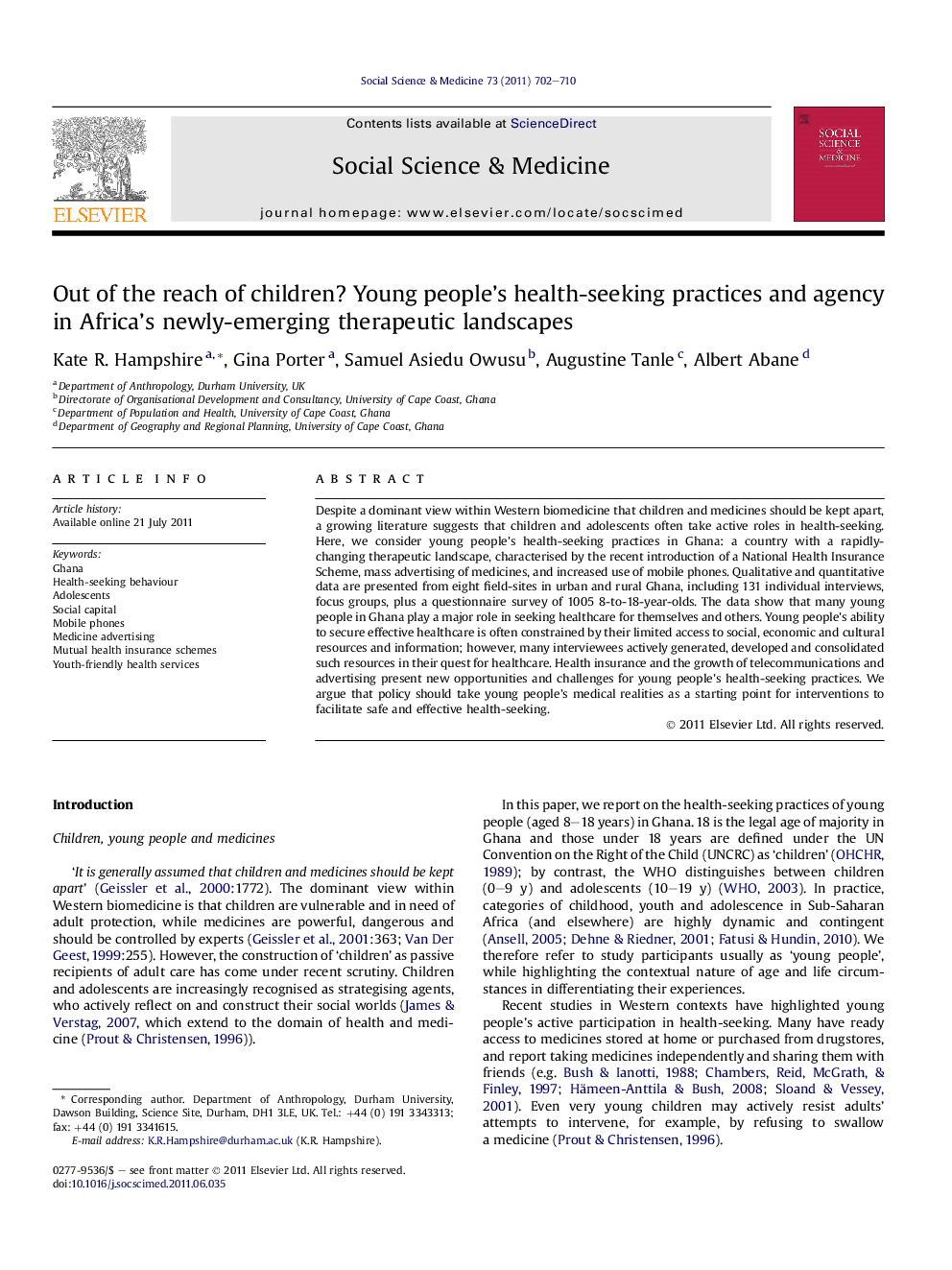| Article ID | Journal | Published Year | Pages | File Type |
|---|---|---|---|---|
| 952571 | Social Science & Medicine | 2011 | 9 Pages |
Despite a dominant view within Western biomedicine that children and medicines should be kept apart, a growing literature suggests that children and adolescents often take active roles in health-seeking. Here, we consider young people’s health-seeking practices in Ghana: a country with a rapidly-changing therapeutic landscape, characterised by the recent introduction of a National Health Insurance Scheme, mass advertising of medicines, and increased use of mobile phones. Qualitative and quantitative data are presented from eight field-sites in urban and rural Ghana, including 131 individual interviews, focus groups, plus a questionnaire survey of 1005 8-to-18-year-olds. The data show that many young people in Ghana play a major role in seeking healthcare for themselves and others. Young people’s ability to secure effective healthcare is often constrained by their limited access to social, economic and cultural resources and information; however, many interviewees actively generated, developed and consolidated such resources in their quest for healthcare. Health insurance and the growth of telecommunications and advertising present new opportunities and challenges for young people’s health-seeking practices. We argue that policy should take young people’s medical realities as a starting point for interventions to facilitate safe and effective health-seeking.
► Young people in Ghana are active health-seekers for themselves and others. ► Young people strategically develop social and economic resources for health-seeking. ► The telecommunications revolution in Ghana offers new health-seeking possibilities. ► Health policy should take young people’s medical realities as a starting point.
